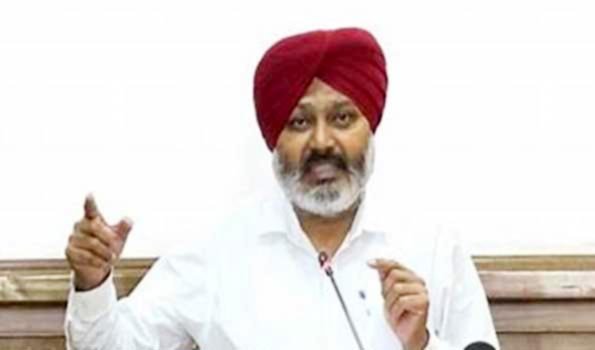New Delhi, Jan 16 (UNI) The Supreme Court on Tuesday allowed the plea by Hindu women plaintiffs to clean the water tank (wuzukhana) of the Gyanvapi mosque at Varanasi, where a shivling was claimed to be found during a commission survey in May 2022.
A bench of Chief Justice of India (CJI) D Y Chandrachud, Justice J B Pardiwala, and Justice Manoj Misra directed the cleaning of the water tank under the supervision of the district administration, Varanasi.
The direction came after Additional Solicitor General Madhavi Divan, appearing in the court on behalf of the Uttar Pradesh government sought permission for the cleaning of the tank, saying there were dead fish in it.
Advocate Vishnu Jain appearing for the women plaintiffs had approached the Apex Court for an urgent hearing in the matter as he claimed a foul smell was emitting from the water tank due to dead fish in it.
Justice Chandrachud observed that” since the petition was not opposed by any party, It is allowed the tank to be cleaned under the supervision of a district administration.”
The top court also noted in its order that a similar plea has been filed by the Anjuman Intezamia Masjid Committee, the management body of the mosque, before a trial court in Varanasi.
The Varanasi district court had, on July 21 last year, directed the Archaeological Survey of India (ASI) to conduct a “scientific survey” of the area, wherever necessary to determine if the mosque located next to the Kashi Vishwanath temple was built upon a temple.
The mosque’s “wazukhana” (a small reservoir where devotees perform ritual ablutions), where a structure claimed by the Hindu litigants to be a “Shivling” exists, will not be part of the survey, the Supreme Court directed and ordered to protect that spot in the mosque complex.
Hindu activists claim that a temple existed at the site earlier and was demolished in the 17th century on the orders of Mughal emperor Aurangzeb. The Hindus claim that there is strong evidence of the Shivling being present in the disputed area as this is one of the oldest Shiva temples mentioned in the Hindu scriptures.











